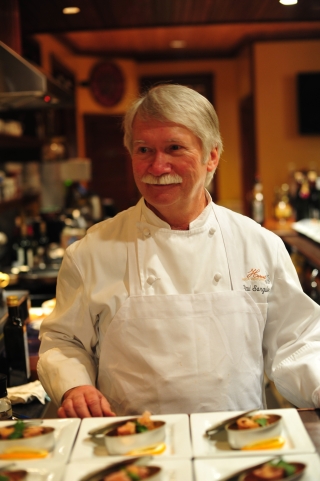
The Role of Collaboration Results in the Freedom to Innovate
01 October 2024“If you want to build a ship, don’t drum up people to collect wood and don’t assign them tasks and work, but rather teach them to long for the endless immensity of the sea.”
Antoine de Saint-Exupery
By Paul Sorgule, MS, AAC
Feedback & comments: This email address is being protected from spambots. You need JavaScript enabled to view it.
It’s all around us if we allow it to be. The opportunity to grow, create, understand, problem-solve, move forward, determine or convince comes from our willingness to collaborate with others. Seeking ways to connect and push each other to think differently results in the freedom to innovate. This innovation can and rightfully should happen between likely and unlikely interactions. In fact, oftentimes the most effective collaborations occur between the least likely partners. This type of collaboration will quite often reveal something fresh, new and exciting.
Yo Yo Ma, the world’s greatest classical cellist, constantly seeks out collaborations that find others scratching their heads in wonder. He has sought unusual partnerships with bluegrass musicians, rap artists, and even rock aficionados like Carlos Santana. The result is uniquely different music that draws a wider audience to the wonders of the cello. Even restaurant chefs have been known to collaborate, bringing unlikely styles of cooking together in a fusion of flavors that inspires young cooks and excites daring guests willing to try the next interesting flavor. So too can be the case in education – a place where collaboration can have a far-reaching impact.
Understanding that it truly takes a village to teach and train the next generation of cooks and chefs, effective programs have always relied on collaborations between the classroom and the professional kitchen. Chefs understand schools are best prepared to teach the foundations of cooking and the formality of working in a kitchen environment. They are well prepared to introduce the history of, methods used, and complexity of operating a kitchen as a business while those same schools fully realize the professional kitchen is best equipped to introduce the repetition, sense of urgency, and team dynamics that separate a successful restaurant from one that struggles. It is this synergy through internships and externships that remains the hallmark of a balanced culinary education.
“Synergy is the highest activity of life; it creates new, untapped alternatives; it values and exploits the mental, emotional, and psychological differences between people.”
Stephen Covey
However, collaboration need not only exist between industry venues and the culinary classroom. There is plenty of room for collaborative efforts between instructor and student, student and student, and faculty from other departments and culinary instructors. This team of educational advocates can blend to create a perfect recipe for learning. Together, this mix of stakeholders can rise to a higher level of connection with those seeking to learn. When this level of collaboration exists then educating the next generation of culinarians leaps beyond the tactile development of skills and into the realm of altruistic learning for the sake of understanding.
“If you want to build a ship, don’t drum up people to collect wood and don’t assign them tasks and work, but rather teach them to long for the endless immensity of the sea.”
Antoine de Saint-Exupery
When a school becomes a collaborative “learning organization” then everyone is lifted to a higher level. When the culinary classroom and the math, science, or history classroom are closer, then real education can take place. When instructors communicate and learn to appreciate each other, then learning grows exponentially. When students begin to understand their individual level of talent pales in comparison to their ability to collaborate with other students as a team, then problems can be solved and goals can be reached. And, when instructors and students work together, listening to one another, then the obstacles to learning will disappear.
“Individual talent can win games, but teamwork and intelligence win championships.”
Michael Jordan
Working together to learn, to uncover the cause of challenges rather than simply the effects; when learning becomes a collaborative process that plays off each stakeholder in the educational process, then we can acknowledge accomplishment.
“No one can whistle a symphony; it takes a whole orchestra to play it.”
Halford Luccock
What are you doing to create a collaborative learning environment?
PLAN BETTER – TRAIN HARDER
Paul Sorgule, MS, AAC, president of Harvest America Ventures, a mobile restaurant incubator based in Saranac Lake, N.Y., is the former vice president of New England Culinary Institute and a former dean at Paul Smith’s College. Contact him atThis email address is being protected from spambots. You need JavaScript enabled to view it..
